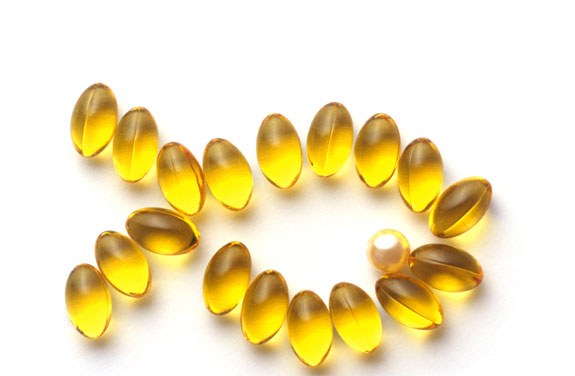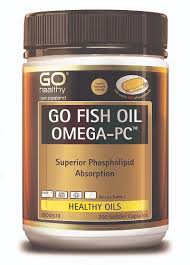What is fish oil good for?
The question is hard to answer – because one doesn’t know where to begin. The benefits of fish oil are legion. Just about every organ system in the body is positively impacted by the omega 3 fatty acids it contains, including EPA and DHA.
Scientists generally agree that omega-3 fish oil is beneficial for the immune system, the skin, the circulatory system as well as the joints. Also, it plays a part in healthy eye and brain function. How could such a simple substance be so beneficial to humans?
This article will answer the question: What is fish oil good for?
Fish Oil Improves Heart Function
Heart disease is a leading and common killer disease in several countries today. Coronary artery disease, also known as coronary heart ailment, is caused by an accumulation of plaque from saturated fat and cholesterol.
Omega 3 fatty acids derived from fish oil helps to lower your blood pressure, decrease the amount of fat in your blood as well as prevent heart disease. Also, studies have shown that increased intake of omega – III fish oil supplements helps to lower mortality due to heart attack, stroke and heart disease.

What is Fish Oil Role in Mental Health
Omega 3 fish oil supplements are beneficial for managing certain mental health problems. Depression is a medical condition characterized by feelings of worthlessness, sadness and lack of interest in delightful activities. Using fish oil, in combination with conventional depression treatment can help to deal with this condition.
Fish oil supplements which contain the essential fatty acids: eicosapentaenoic acid and docosahexanenoic acid can help to alleviate depression symptoms, especially if you have severe depression. Also, fish oil is beneficial for individuals who have psychosis, Alzheimer’s disease or attention deficit hyperactivity problem.
During Pregnancy, What is Fish Oil Good For?
Fish oil reduces the risk of pregnancy complications. Studies have shown that fish oil supplementation can help prevent complications in pregnancy, including low birth weights and premature delivery.
It has also been established that fish oil consumption during pregnancy helps to decrease the risk of developing post-partum depression. For best results, healthcare professionals recommend that women should take omega-III fish oil supplement consistently during pregnancy.
Additional Health Benefits
Fish oil supplements will benefit you if you have eye problems like age-linked macular degeneration, glaucoma or dry eyes. A number of ladies take fish oil in order to prevent painful periods, premature delivery, and miscarriage. Fish oil is also beneficial in the treatment of diabetes, dyslexia, asthma, obesity, kidney disease, osteoporosis and psoriasis.
All of these fish oil benefits are dependent upon the quality and purity of the fish oil. It must not contain impurities; have good anti-inflammatory properties and rich in DHA and EHA. The next time someone asks what is fish oil good for, you can state confidently that it helps to correct nutritional deficiencies as well as deal with a number of health conditions.

What enhances these benefits is selecting the ideal kind of fish oil supplement to take every day. In this short special report, you will learn about the different factors that one must consider before selecting a brand of this supplement. Click here to read the report now.
How To Choose A Fish Oil Dietary Supplement
Fish oil dietary supplements have a host of benefits including relief from asthma, protection from colon cancer, treatment of clinical depression, and even some positive impact on multiple sclerosis and rheumatoid arthritis.
But by far the biggest advantages of regularly taking a fish oil dietary supplement comes in the form of lower risk of heart disease and a lower triglyceride level, as well as reduced incidence of stroke and sudden death.
Fish oil is the best source of critical long-chain omega fatty acids like DHA and EPA, yet the most likely to be contaminated with PCBs, DDT and dioxin, along with heavy metals like mercury. An option that allows you to safely enjoy the benefits is to take fish oil dietary supplements in the form of capsules.

All you need in terms of DHA and EPA omega 3 fats is contained in three grams a day of fish oil. It naturally follows that when you pick a dietary supplement, you should make sure it has the highest concentration of DHA and EPA. This depends on a few factors like:
* Is the fish clean? The best brands of fish oil dietary supplements use catches from pure, cold, unpolluted waters far away from typical commercial shipping lanes.
* Is it molecularly distilled? This process not only removes all impurities and contaminants, it also concentrates the long chain omega 3s in the oil, adding to the potency.
* Is it rich in DHA and EPA? The fish oils richest in these essential fatty acids are mackerel, salmon and halibut. A little known species, the Hoki in coastal New Zealand, is a specially rich source.
* Is the fish fresh? When long transfer periods are involved, the oil can get rancid and lose potency and effect
Omega 3’s role could be absolutely life-saving! In a report in the medical journal, JAMA, 20,000 men were followed for 11 years and found that those who ate fish one or more times a week had a 50% reduced risk of sudden death from a heart attack – over the following 10 year period!
When persons who frequently ate fish were observed, it was found that they succumbed to sudden death in much fewer numbers than those who did not. This isn’t surprising, because when these few were autopsied, they were found to be free from atherosclerosis. Lancet published a paper that showed fish eaters reduce their post heart-attack risk of sudden death by 29%

A Dutch trial involving over 550 men focused on the benefit of fish oil for preventing stroke, and reported a whopping 51% reduction from normally expected stroke statistics from those who got omega 3 from fish oil in their diet. Taking fish oil supplements significantly lowered the risk of death, fatal heart attacks and stroke.
Picking the best fish oil dietary supplement is therefore a very serious and important decision that impacts your health and welfare. Choose wisely and well. Learn more about how to choose the best fish oil supplements in this free report – click here.
Fish Oil Concentrate – All You Wanted To Know
Fish oil concentrate implies a focused and enriched version of omega 3 fish oil that adds super powers quickly and easily. The truth is that these concentrates aren’t always a good thing, and might even carry significant dangers if you are careless about your choice. Here is what you should know about this group of health supplements in order to make informed decisions.
There is really no doubt that fish oil concentrate has many health benefits. They can help lower your cholesterol levels, protect you against such conditions as cancer, vision loss, bone loss, inflammation diseases and many more ailments.
With these benefits in mind, the majority of individuals are happy to purchase whatever fish oil product they can find. However there are some dishonest supplement producers, dealers and marketers who are only interested in making quick money. These unscrupulous individuals flood the market with badly produced, and even possibly harmful fish oil supplements.
What you must understand is that not all fish supplements are the same. Some products are quite effective, while others are completely useless and may even harm your health. For example, even though the word “concentrate typically means higher doses or concentrations, it does not always mean greater benefits. For a start, you need to find out the source of the fish oil.

Cod liver oil happens to be the least costly, of all the fish oil sources available. It is regarded as the worst source of omega 3 essential fatty acids, because fish oil concentrate derived from this source might contain toxic doses of vitamin A and mercury and too many impurities. That’s why you should consider avoiding such supplements completely.
Even though vitamin A and mercury do have helpful properties, the concentrated forms can result in vitamin A toxicity and mercury poisoning. In addition, it is common to find PCBs (polychlorinated biphenyls) and DDT (dichlorodiphenyltrichloroethane) within omega 3 supplements produced from cod liver oil.
Generally, bigger fishes such as tuna, wild salmon and mackerel provide healthier omega III fatty acids than cod; however these sources might contain unhealthy amounts of impurities such as PCBs, mercury, dioxin, chlordane, in addition to high amounts of vitamin A and mercury as well. Fish oil concentrate can also be derived from farmed salmon, which might be a healthier source; however these have very little useful qualities. Smaller fish such as sardines are the finest sources of fish oil.
One other thing you need to determine is the actual chemical composition of the concentrated supplements. The product labels of these supplements usually contain information about the ingredients such as EPA (eicosapentaenoic acid) and DHA (docosahexaenoic acid). The finest supplements are the ones that contain higher doses of docosahexaenoic acid. If the bottle label says very low quantities of docosahexaenoic acid, then the product is most likely poor grade.
Once you start using omega 3 fish oil supplements, you will find that the health benefits are impressive. However, do not forget to consult your doctor regarding the dose of fish oil concentrate that is most appropriate for you. To be more informed about your options, check out this free special report with details about how to pick the best fish oil for your needs – click here to read it now.
Why You Should Always Use Concentrated Fish Oil
Fish oil supplements provide multiple health benefits. But these advantages come with some risks and dangers that you need to guard against.
Concentrated fish oil use will help avoid some of these problems and maximize your benefits from taking supplements. There are two major reasons to choose concentrated fish oils:
1. It removes contaminants.
Farmed fish frequently contain toxins and pollutants that can potentially harm your central nervous system, your immune system, and cause cancers or birth defects. In a 2 year investigation at Cornell University, New York, top specialists in the field of industrial pollution published their findings in the journal ‘Science’.
They reported that they found very high levels of banned insecticides like toxaphene as well as PCBs and dioxins in farmed fish. They also stated that this could be harmful to consumers!
And that isn’t all. There’s also mercury! A lot of fish are contaminated with methyl mercury. This chemical is a relic of an era of industrial waste disposal from the olden days.
Mercury can damage many organ systems and tissues. Humans are exposed to methyl mercury primarily by eating fish. It is also likely to harm developing fetuses when taken by pregnant women.
Molecular distillation makes fish oil capsules even safer by removing any mercury or other heavy metals, dioxins, PCBs and other contaminants, resulting in a form of concentrated fish oil that’s safe and pure.

2. It increases potency.
Another primary reason to concentrate fish oil is to increase the omega 3 content. Fish oil is a rich source of long chain omega 3 fatty acids like DHA (docosahexaenoic acid) and EPA (eicosapentaneoic acid), both of which are necessary for healthy functioning and development.
DHA is important for heart health and specifically brain development of fetuses and newborn babies, making up 30% of the brain’s cortex and 15-20% of the eye’s retina. The best brands of fish oil provide 500 mg of omega 3 per capsule, of which at least 260 mg is DHA.
Manufacturers should guarantee purity, and you can check this by studying their Certificate of Analysis (COA) on their websites. The section on ‘contaminants’ should read “not found” ideally. You’ll also know how fresh the oils are, by looking at the ‘total oxidation’ label. A very low amount indicates fresh oil was put into the capsule.
By using concentrated fish oil, you ensure purity from contamination and maximum efficacy in your dietary supplement. If you’d like to learn more about the DHA fish oil supplements I personally take daily (and highly recommend to my friends), please drop by my website today.
Fish oil, though endowed with many health benefits, also can be risky – if you don’t take precautions. One is to use concentrated fish oil always. There are two major reasons for this recommendation, and a host of other minor ones too. Read all about it, and ensure you get all the benefits – without any risk!










